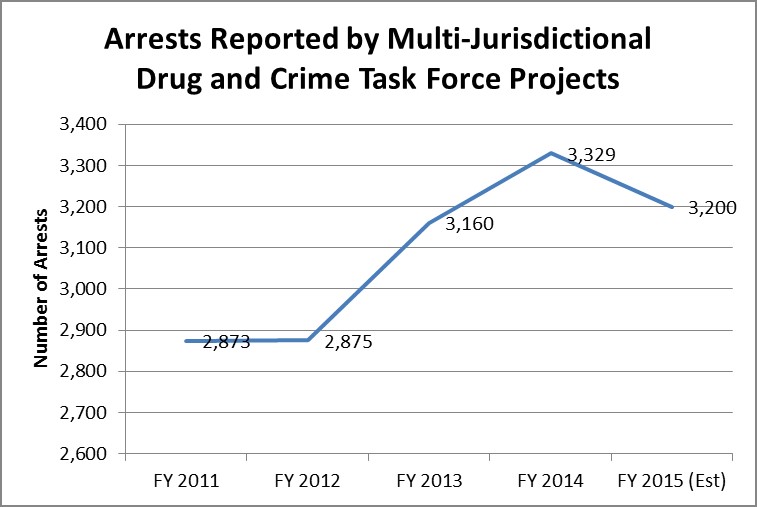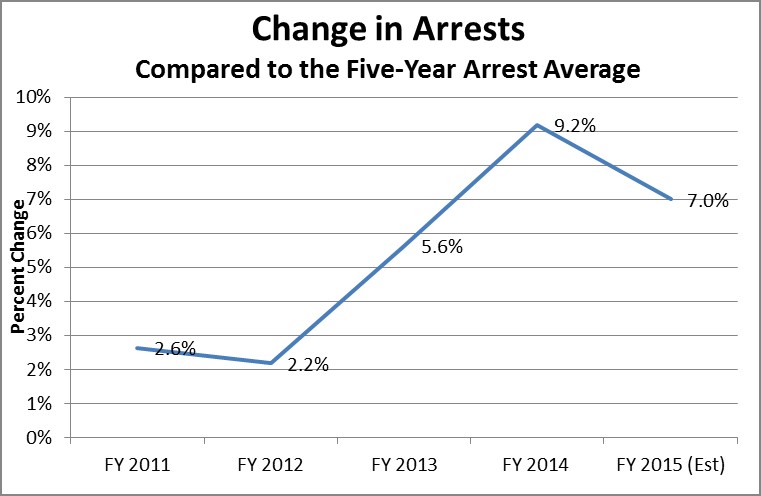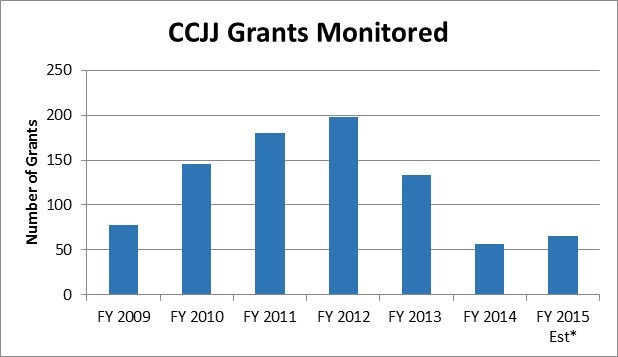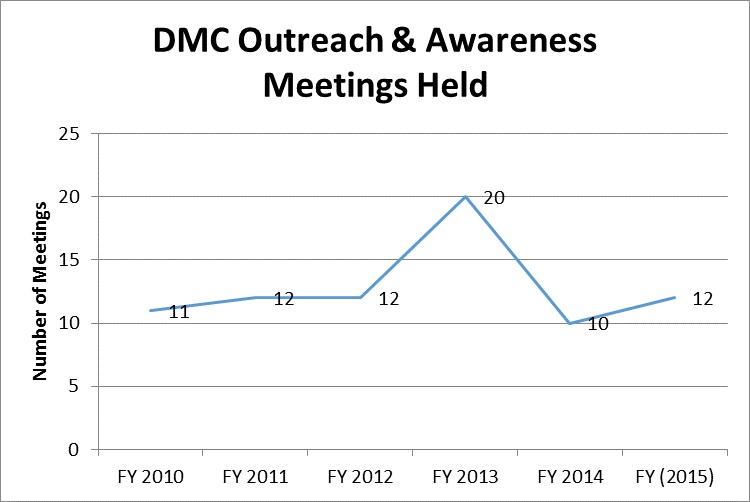The CCJJ Commission program manages state and federal criminal and juvenile justice grant programs and provides analysis, accountability recommendations, and supervision of criminal justice grant monies. It conducts research on criminal and juvenile justice issues, evaluates policies in Utah and other states, and develops policy recommendations from this research and evaluation. The Office on Domestic and Sexual Violence within CCJJ addresses issues of domestic violence, rape, and sexual assault and dating violence.
During the 2015 General Session, the Legislature appropriated for Fiscal Year 2016, $10,475,600 from all sources for CCJJ Commission. This is a 14.6 percent reduction from Fiscal Year 2015 revised estimated amounts from all sources. The total includes $1,523,400 from the General/Education Funds, an increase of 25.1 percent from revised Fiscal Year 2015 estimates.
In addition to statewide compensation and internal service fund cost increases, the following appropriation adjustments were made during the 2015 General Session:
Arrests Reported by Multi-Jurisdictional Drug and Crime Task Force Projects
The chart below indicates law enforcement activity in drug and crime enforcement, through administration of the Law Enforcement Operations Account (STFG) and the State Asset Forfeiture Grant (SAFG). This measure is used to demonstrate project activity resulting from grant funding appropriated by the Utah Legislature.

Change in Arrests Compared to the Five-Year Arrest Average
The chart below indicates the percentage increase or decrease of arrests each year compared to the five-year arrest average, as reported by the 17 multi-jurisdictional drug task forces in the State of Utah that are receiving grant funding from the Law Enforcement Operations Account (STFG).

CCJJ Grants Monitored
The chart below shows the number of grant projects monitored for the past six fiscal years and an estimate for fiscal year 2015. Fluctuation in the graph reflects availability of monitoring staff and a focus on risk-based grants that require a more in-depth review.

DMC Outreach & Awareness Meetings Held
The chart below shows the number of meetings held with stakeholders and community organizations to update Disproportionate Minority Contact (DMC) data and strategically plan coordinated DMC reduction activities. Meetings also served to educate, raise awareness on issues, and ask for participation where appropriate.

UCA 63M Chapter 7 Part 2 highlights specific duties of the commission:
- study, evaluate, and report on the status of crime in Utah and the effectiveness of criminal justice programs;
- study policies of other jurisdictions which have effectively reduced crime;
- implement specific policies that will reduce crime;
- analyze and make recommendations on all criminal justice legislation, budget, and facilities requests;
- supervise state and federal criminal justice grant monies;
- assist local units of government;
- provide a comprehensive criminal justice plan annually; and
- prepare an annual report for the Governor, Legislature, and Judicial Council.
COBI contains unaudited data as presented to the Legislature by state agencies at the time of publication. For audited financial data see the State of Utah's Comprehensive Annual Financial Reports.